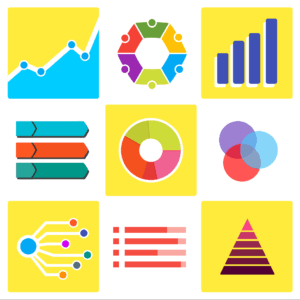Establishing Data-Driven Best Practices
Best practices need to be established in areas such as data quality, machine learning and artificial intelligence, as well as the ethical and legal implications of such new developments. As McKinsey observes in its article, “Scaling AI for success: Four technical enablers for sustained impact,” organizations are struggling with complex data sets, obsolete models, security concerns, and more as they scale AI, while of course maintaining costs and productivity. McKinsey notes there are many roadblocks to success: “Many organizations can successfully conduct experiments and create proof-of-concept models but have trouble transitioning to production-ready models.”
The consulting company identifies four technical enablers that it feels can streamline the process for a global enterprise. This includes incorporating data products such as feature stores, using code assets, implementing standards and protocols, and harnessing the technology capabilities of machine learning operations. While some of these themes are beyond the scope of this article, let’s focus for a moment on standards and protocols. This, it would seem, would be in the wheelhouse of the data science professional.
McKinsey advises, “Emphasizing data and ML best practices is paramount to successfully scaling AI applications within an organization. By implementing a series of clearly defined protocols, organizations can streamline the analytics process. Such protocols typically define how organizations approach new projects, ingest data, engineer ML features, and build and test models. After a model is deployed, closely monitoring its performance and conducting maintenance become essential to achieving the best possible performance.”
Collaboration across teams can also be key to developing AI beyond a singular project. McKinsey continues, “These best practices must be codified into comprehensive guides that explain the sequence of activities, important deliverables, and roles of various stakeholders, such as data scientists, engineers, and business professionals. Organizations that adopt these best practices can scale AI more efficiently and foster a culture of cross-functional collaboration.”
Scaling AI Beyond Pilot Projects
At FEI 2025, Arvind Balasundaram, Executive Director, Commercial Insights & Analytics at Regeneron Pharmaceuticals, will hold a session, “Scaling AI Within Global Corporate Enterprise For Better Decision Making.” This session looks to move beyond isolated pilot projects and tackle the critical challenge of scaling AI within global corporations to enhance decision-making. It will explore:
- Overcoming “Pilotitis”: Strategies for transitioning from proof-of-concept to enterprise-wide AI deployment.
- Adapting to the Evolving AI Landscape: Staying ahead of the curve as AI technologies and implementation best practices rapidly change.
- Maturing AI Initiatives: Progressing from early-stage exploration to real-world testing, validation, and scaling.
- Impact Assessment: Identifying and measuring the specific decisions influenced by AI within the organization.
- Human-AI Collaboration: Determining the optimal balance between AI augmentation and human judgment in decision-making processes.
Attendees will gain practical guidance on scaling AI initiatives, maximizing their impact on business outcomes, and fostering a data-driven culture.
Optimizing the AI Operation
Clearly, cross-functional collaboration must be enhanced and a strategic framework must be constructed for an AI undertaking across a global enterprise. AI integration is a complex task, which ideally would be seamless but in reality, that’s not a given due to the diversity of challenges.
Best practices must be established in avenues such as the strategic vision and roadmap, the data foundation and workflows, data governance, machine learning best practices, monitoring and maintaining performance, not to mention the infrastructure and technology. In addition, on the human side of the equation is the people, process and culture. Fostering a collaborative environment across data scientists, engineers, and business professionals remains key.
Ultimately, McKinsey advises, “No matter where organizations are in their AI/ML journey, they can effectively scale their capabilities by investing in data products, code assets, standards and protocols, and MLOps technology capabilities. Embracing these enablers not only streamlines the development and deployment process but also facilitates continuous improvement and adaptability in the face of changing market dynamics. Ultimately, businesses that prioritize these enablers will be better positioned to harness the power of AI, maintain a competitive edge, and drive success in an increasingly data-driven world.”
Video courtesy of Deloitte US
Contributor
-

Matthew Kramer is the Digital Editor for All Things Insights & All Things Innovation. He has over 20 years of experience working in publishing and media companies, on a variety of business-to-business publications, websites and trade shows.
View all posts





























































































































































